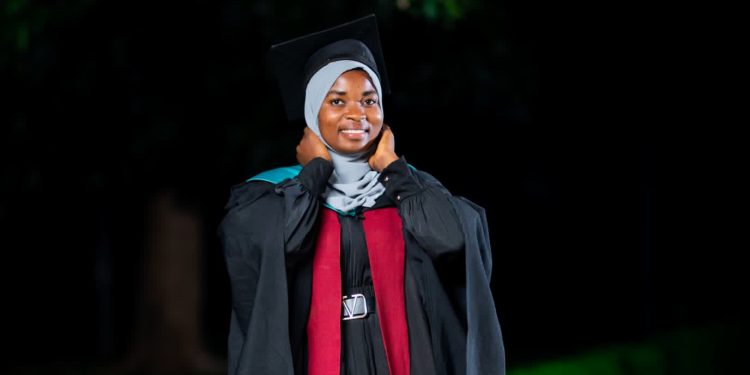
Muslim Women in Malawi have been commended for being vigilant on the fight against HIV/AIDS.
Marriam Ali Khan Coordinator for Mai Aisha Youth and Aids Program (MASYAP) said previously, more Muslim women were contracting HIV because of the culture of silence.
She however said through monthly meetings which their organisation conducts with various support groups, more women are able to open up and talk freely about HIV/AIDS issues because they now know that the pandemic has also greatly affected the Muslim community.
“We are happy that more women are now coming, the culture of silence is ending as they are able to talk about HIV/AIDS issues with their spouses.
Hitherto, many Muslim women have been facing problems in their families but failed to report to the appropriate institutions in fear of losing their marriages or damaging the image of Islam.
So, they were ending up dying in silence.
This landed them in an ocean of trouble, but addressing cultural taboos is more complex than these women simply not realizing their rights.
“Previously, many people thought we Muslims are not affected by HIV/AIDS but through our meetings as well as awareness campaigns we have been doing people now realise that the deadly pandemic has not spared any community – we are also affected,” she said.
Khani therefore revealed that plans to hold a workshop for the sheikhs is underway and it is expected to be held next month. She said they decided to engage the sheikhs because they are close with people and they can easily disseminate the message about the dangers of HIV/AIDS and how the pandemic has greatly affected the Muslim Community.
Despite the progress they are making Khan said challenges still remain saying currently they have one donor Mai Aisha Trust which makes them fail to fulfil some of their programmes due to inadequate funding.
[pullquote align=”right”]“Previously, many people thought we Muslims are not affected by HIV/AIDS but through our meetings as well as awareness campaigns we have been doing people now realise that the deadly pandemic has not spared any community – we are also affected.” [/pullquote]
Lucy Mbewe from Mtendere Madrassa Support Group in Chiradzulu said through monthly meetings facilitated by MASYAP she has achieved a lot in the sense that she has learnt how to tackle HIV/AIDS issues and homebased care with the increase in number of orphans and people infected with HIV/AIDS.
She however said they face some challenges like lack of materials to enable them work efficiently.
“Since most of the Muslim women are jobless, it becomes difficult for them to buy things like Soap and Gloves to wear when taking care of patients. Instead, we put on plastic bags which in some cases get damaged in the process since they are not made for that task.
“We also ask well wishers to help us with money so that some of our patients can start doing business because although they are HIV positive, they are strong to start small scale business to help themselves,” she said.
Mbewe’s sentiments were echoed by Sameer Mkunga of Lirangwe Madrassa women support group.
Mkunga said her grouping, which assists about 20 orphans, and 16 women who are HIV positive, is also facing similar problems.
MASYAP started in 2008 and it has 517 members of which over 200 of them are HIV positive.
Reporting by Robert Kumwenda, official correspondent for Malawi Muslims Official Website in Blantyre



















